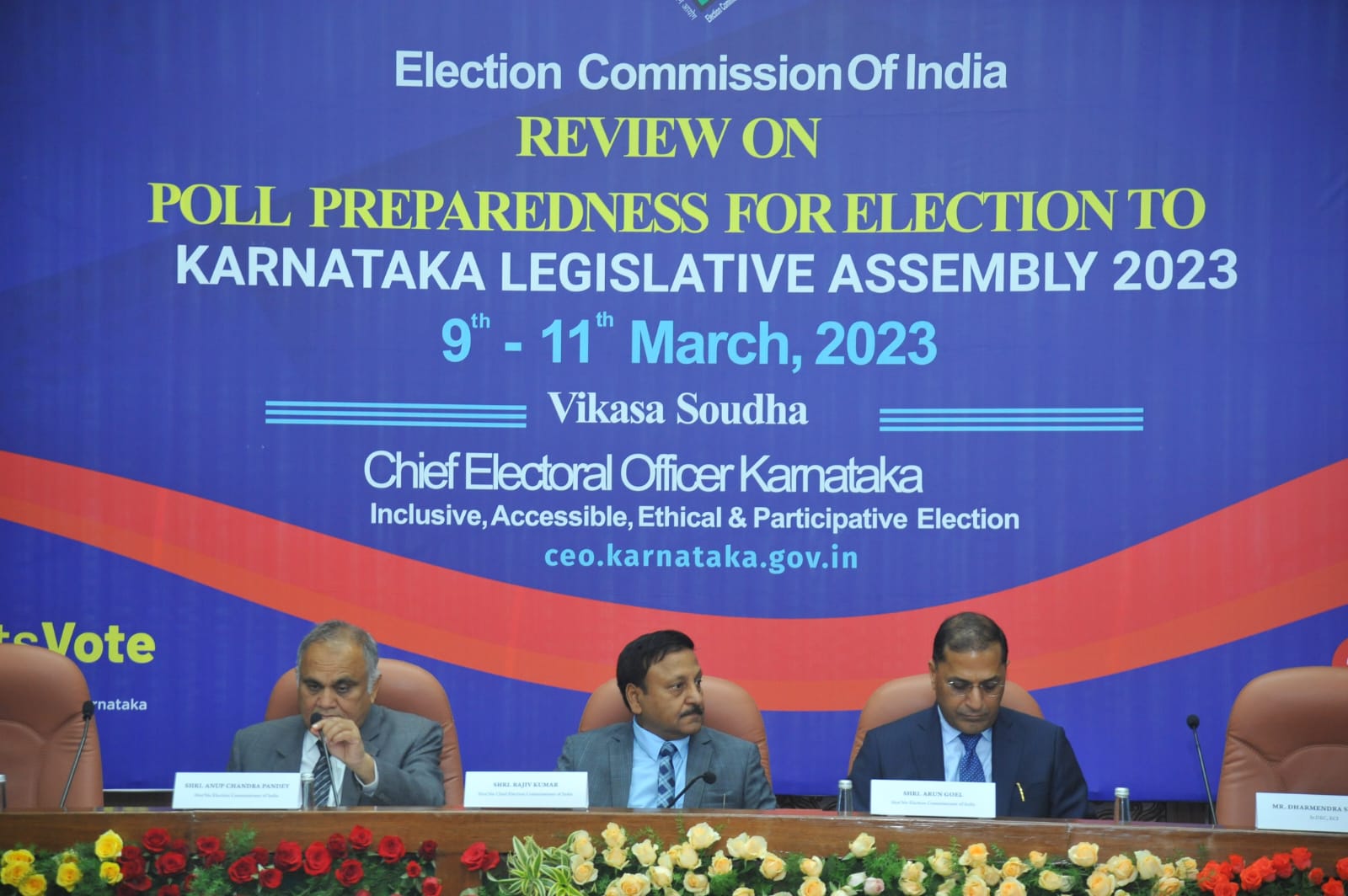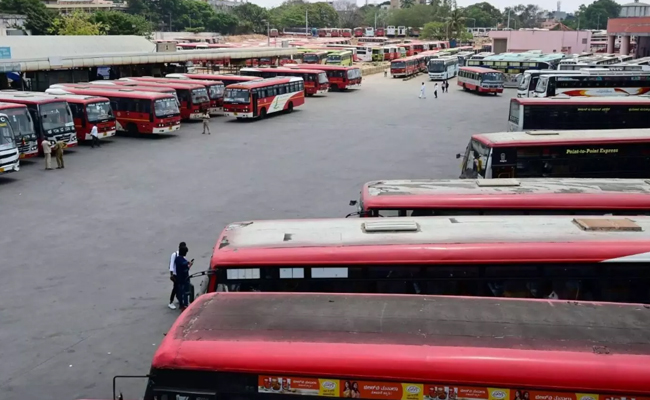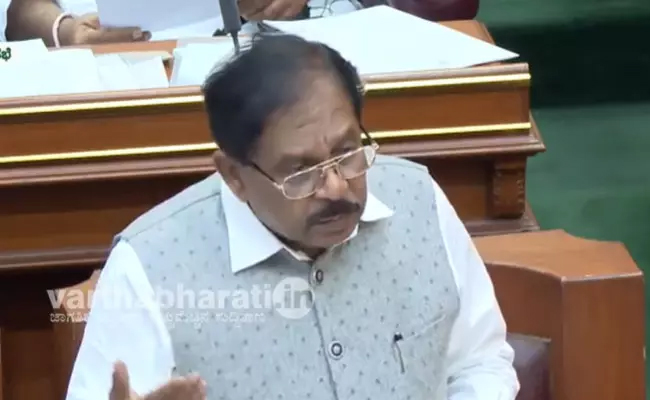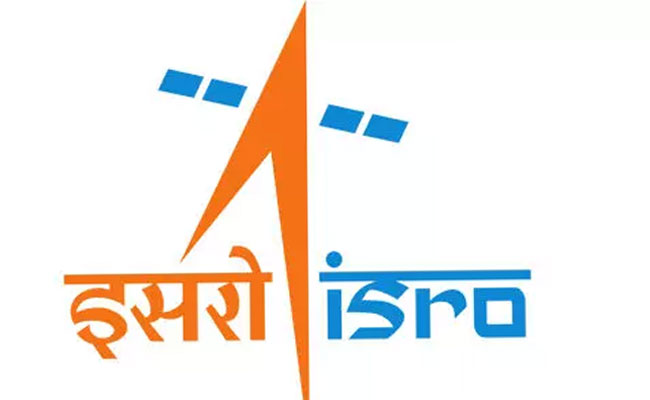Bengaluru, Mar 10: Chief Election Commissioner Rajiv Kumar on Friday flagged concern over the apathy among young and urban voters during elections and called it a major challenge.
He wondered why polling day is not celebrated like a festival of democracy and rather taken as a holiday.
"One major challenge before the Commission is the general apathy, mainly young and urban apathy amongst our voters," Kumar said during 'Vote Fest-2023' organised by the Chief Electoral Officer of Karnataka and the Bruhat Bengaluru Mahanagara Palike (BBMP).
The CEC sought to know how to motivate the 'non-voters' and draw them to the polling stations.
"It has become extremely crucial to understand the reasons, perceptions, beliefs, motivations, barriers, challenges, experiences, contexts, and the contours that shape their decision to not cast their vote. Can we motivate these non-voters to realise their power, believe in that power and energise them to take the call that their one vote can make a huge difference?" Kumar wondered.
"Why can't we celebrate the polling day with the same zeal, enthusiasm and colours as we celebrate our festivals? Today, youth is at the perpetual state of presumption that their vote does not influence government decision-making," he pointed out.
As part of its exercise to encourage voters to exercise their franchise, the Commission launched a Hackathon 'ELECTHON 2023' to encourage innovation and creative solutions to issues of electoral process.
Twin exhibitions on history of elections in Karnataka and voter awareness was organised at the J N Tata Auditorium of the Indian Institute of Science.
Around 1,000 people attended the programme where the oldest voters were felicitated and a few young voters were symbolically presented with new voter ID cards. Persons with disability, tribal youth and transgender icons were also honoured.
Further, the CEC also participated in an interaction session in which various dignitaries including the vice chancellors of universities, director of IIIT/IIM(B), chairperson/CEO of IT companies, districts and state icons, entrepreneurs, students and young voters were present.
Kumar also flagged off eight mobile vans with LED hoardings carrying voter awareness messages by celebrities like ace retired cricketer Rahul Dravid persuading people to vote.
The eight vehicles will cover all the 28 assembly constituency segments of Bengaluru as a part of Systematic Voters' Education and Electoral Participation (SVEEP).
A team of Election Commission officials led by CEC Rajiv Kumar arrived in the city on a three-day visit on Thursday to assess the readiness for assembly elections in the state.
Let the Truth be known. If you read VB and like VB, please be a VB Supporter and Help us deliver the Truth to one and all.
Bengaluru: The Karnataka State Road Transport Corporation will operate 1000 additional special services in view of the Christmas festival.
In addition to the existing schedule, the special services will run on 19.12.2025, 20.12.2025 and 24.12.2025. Further, special buses will be operated from various places of intra & Interstate places to Bengaluru on 26.12.2025 & 28.12.2025.
Special buses will be exclusively operated from Bengaluru Kempegowda Bus Station to Dharmastala, Kukkesubramanya, Shivamogga, Hassan, Mangaluru, Kundapura, Shringeri, Horanadu, Davangere, Hubbali, Dharwad, Belagavi, Vijayapura, Gokarna, Sirsi, Karwar, Raichur, Kalaburagi, Ballari, Koppala, Yadgir, Bidar, Tirupathi, Vijayawada, Hyderabad and other places.
ALSO READ: Bengaluru: Shopkeeper stabbed for refusing to serve free panipuri
Special buses from Mysuru Road Bus Station will be exclusively operated towards Mysuru, Hunsur, Piriyapatna, Virajpet, Kushalanagar, Madikeri.
The corporation has also announced a discount of 5 per cent on the fare if four or more passengers book tickets under a single reservation. A discount of 10 per cent will be extended on return journey tickets if onward and return tickets are booked simultaneously.
In addition to the above, special buses will be operated from all Taluk/District Bus Stands in the jurisdiction of KSRTC based on the traffic needs.






